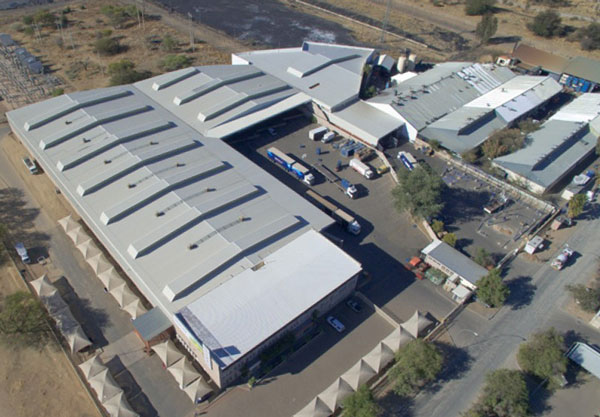
Oryx property portfolio records 5.5% growth

The property portfolio of Oryx Properties Limited is now valued at N$2.435 billion which shows a growth of 5.5% from the N$2.326 billion recorded during the 2016 financial year.
Research firm, IJG securities noted that the growth stems largely from capital expenditure of N$131 million relating to the completion of the new Virgin Active premises, exceeding the estimated capital outlay for the project in the during last year’s financials which was N$80 million.
Oryx released its results for the financial year ended 30 June 2017, showing that the total distribution per unit remained unchanged at 167c, compromising of dividends declared of 10.3c per linked unit and interest distributions of 156.8c per unit.
The results show that interest distributions fell by 5.6%, to N$122.0 million from N$129.2 million declared in FY16. Earnings attributable to linked units per unit (EPU) contracted by 37.6%, to 197.6c, from 316.63c in in FY16, while headline earnings attributable to linked units fell by 2.7% from 163.0c in FY16, to 158.64c in FY17.
Net rental income rose by 2.1%, to N$200.9 million compared to N$ 196.7 million the same period last year. Rental expenses rose 5.0% from N$91.5 million in FY16 to N$96.1 million in FY17. Oryx reported a profit after tax for the period of N$31.6 million, a decrease of 70.0% compared to FY16.
The new Family Entertainment Centre is still under construction. Retail space continued to represent the bulk of assets at 63%, while industrial space contributed 26%, and office space made up 11%.
“In line with views on the current state of wholesale and retail trade as well as the economy as a whole, a negative fair value adjustment on property of N$3.8 million was recorded in FY17, compared to the positive N$84.8 million in FY16,” IJG stated.
Vacancies at Oryx (as a percentage of lettable area) increased markedly from 2.1% in FY16 to 6.4%. According to Oryx the sharp rise in the vacancy rate was a consequence of a South African tenant which was placed into liquidation. This led to 6,263 square metres of industrial warehousing space being vacated, which accounted for 53% of the 6.4% total vacancy factor.
“Oryx is actively marketing the warehouse. Management of Oryx is actively engaged to sell off property investments in South Africa. Citing unacceptably high renewal risks as reason, property to the value of N$19 million was sold, while two other properties, worth N$14 million and N$56 million respectively, had sales agreements in place at financial year end. Furthermore, Oryx disposed of their investment in Delta Property Fund where a capital gain of N$4 million was recognised and dividends of N$1.2 million was received. These gains will be distributed to unit holders,” IJG reported.
Oryx’ interest bearing borrowings increased by 20% y/y to N$835.9 million in FY17, from N$695.9 million in FY16. N$220 million of long term debt matures in August with management having commenced with refinancing the loan.
The ratio of fixed rate borrowings to floating rate borrowings was 63:37 as at year end, with a weighted average interest cost remaining flat at 9.4%. Capital expenditure has largely been the driver of the gearing ratio which is now 33.2% versus 29% in FY16.
“Expectations are for interest bearing borrowings to increase going forward as the renovation of the Gustav Voigts property commences, although to be partially offset by the sale of two South African properties of N$67 million and the sale of the property worth N$56 million being registered after financial year end in July 2017. The FY17 distributions of 167c came in well above our expected 161.2c per linked unit. The distribution yield for the period of 8.1% is an improvement from the 7.8% and 7.9% of 2016 and 2015 respectively. Pending full review of the FY17 results, during which we will update our estimates and target price, we maintain our sell recommendation,” IJG concluded.












































